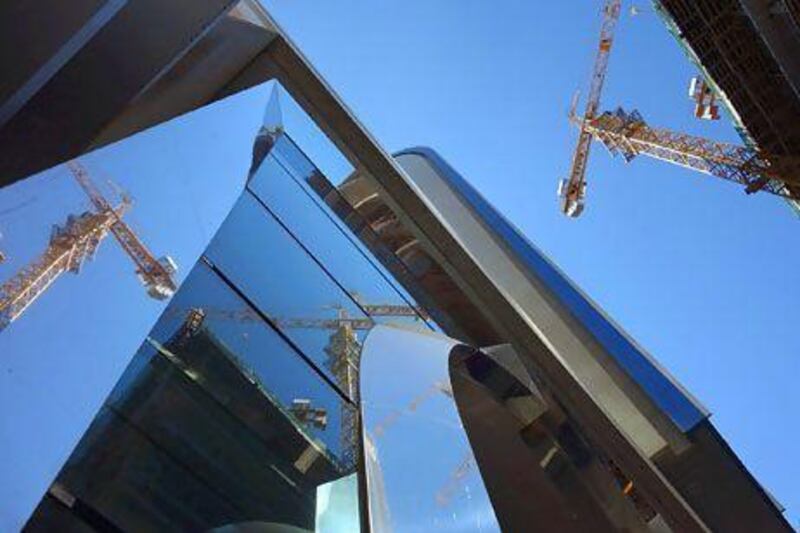From people sleeping in queues overnight to buy an off-plan apartment, to a global crisis that left buildings empty and sent capital values into freefall, the UAE property market experienced a violent swing in a matter of months in 2008.
While the scars are healing, we must learn the lessons of the mid-2000s bubble era and ensure such extremes are never repeated.
Boom-bust was a global phenomenon, with the most far-reaching consequences seen in developed markets from the United States to Spain, where easy money and lax lending practices inflated property prices and drove an unsustainable building spree.
But bubbles also formed in countries such as China, India, Vietnam and the UAE - where a modern property industry grew almost overnight, prompted by changes in laws on development, on ownership, or both.
Typically an intense burst of buyer interest, coupled with strong economic growth, made property development lucrative. Developers flooded the market with buildings of much higher quality than previously available. This had a multiplier effect, benefiting different property development businesses.
Off-plan sales and cheap credit encouraged speculators, who started to outnumber end-user buyers, and that in turn influenced what developers built. With fortunes made overnight, even the most rational people were drawn into the frenzy.
But when supply inevitably outstripped real demand - and the global financial crisis froze lending - the whole process was sent into reverse, causing a domino effect through the construction industry and into the wider economy.
Although property is classically cyclical, extremes are most common in this first phase of development of a modern industry - and I hope in the UAE we have learnt from the experience and can consign it to the past.
Since 2008, market dynamics and government moves to reduce and consolidate supply have brought about the end of that first phase. Prices and buying activity are starting to pick up in Dubai.
In Abu Dhabi, where supply was more moderate, prices fell less dramatically and have been stabilising for a year.
The property industry is now entering the next phase of its evolution - development of a healthy asset market. Industry players including developers, government agencies and financial institutions need to work together to get this second phase right.
Collectively, we need to encourage an active end-user market, and build a sustainable property industry that serves the country's residents and economy well in the long term.
Government investment aimed at economic diversification, such as Abu Dhabi's five-year US$90 billion (Dh330.55bn) capital spending programme targeting areas such as infrastructure, industry, tourism and education, will create real end-user demand for property in the coming years.
The property industry should now concentrate on serving this customer-driven demand.
Despite the building boom, much of the country's stock of property is outdated and needs to be replaced by higher-quality development around well-planned nodes so as to create healthy, functioning communities.
Downtown Dubai is an excellent example of a district that has quickly gained popularity for its lifestyle, because people live, work and socialise in one area. We will see the same kind of value creation in Abu Dhabi in areas such as Raha Beach, Yas Island and Al Reem Island.
However, there is more to be done than just supplying the right product.
More work also needs to be done on clarifying the rights and obligations of property owners. The modern property that we have built needs to be properly managed - and that requires people to accept the idea of paying for services. The alternative is for building quality to rapidly degenerate, resulting in a loss of value.
We also need to increase information flows on rents and capital values to help build market confidence. In Jones Lang LaSalle's latest property transparency report, Dubai and Abu Dhabi were categorised as "low transparency" markets together with secondary Chinese cities and India. Through a change in attitude in the industry, we can improve significantly.
The UAE's property regulations have developed well in a short time, but we still need to expedite the enactment of a new property law to further develop and stabilise the sector.
Fees levied by developers, property agents and authorities need to be regulated and minimised to ensure transparency and sustainable growth of the end-user market.
For any property industry to thrive and grow, finance needs to be available at rates that encourage people to swap rental payments for mortgage payments. Now, as real end-user demand develops and speculation becomes a distant memory, banks should be stepping up to supply mortgages on reasonable terms.
Despite the dramatic swings in the UAE property sector over the past few years, I am confident that the industry is now developing as it should.
Cycles will come and go, hopefully with much less volatility as the market matures. With better information flow, government investment that expands end-user demand, and continued stakeholder involvement in forming public policies, the property sector should both contribute fully to, and benefit from, the UAE's economic development.
Abubaker Al Khoori is the managing director of Sorouh Real Estate and chairman-designate of AldarSorouh Properties.





